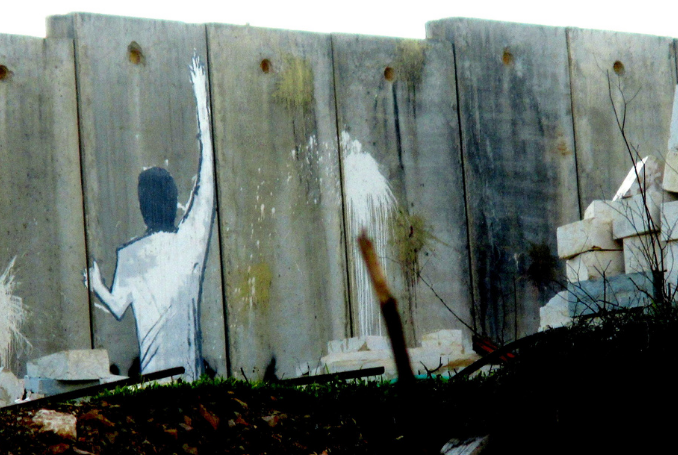
The Israeli state’s response to the recent Amnesty International report, ‘Israel’s Apartheid against Palestinians: Cruel System of Domination and Crime against Humanity’, was predictable. Though the report confirms the state continues to violently oppress the Palestinian people (a moral and legal category), it was decried by it as “antisemitic.” Bearing on this, Israeli journalist and critic of the state, Gideon Levy, properly observes:
“As the curses and screeches subside – Amnesty are antisemites, the report is full of lies, the methodology is absurd – one must ask: What, precisely, is incorrect in the apartheid report?
Was Israel not founded on an explicit policy of maintaining Jewish demographic hegemony, while reducing the number of Palestinians within its boundaries? Yes or no? True or false? Does this policy not exist to this day? Yes or no? True or false? Does Israel not maintain a regime of oppression and control of Palestinians in Israel and in the occupied territories for the benefit of Israeli Jews? Yes or no? True or false? Do the rules of engagement with Palestinians not reflect a policy of shoot to kill, or at least maim? Yes or no? True or false? Are the evictions of Palestinians from their homes and the denial of construction permits not part of Israeli policy? Yes or no? True or false?”
The state simply cannot tolerate any criticism of itself. Their aim is to get the public to see that they are not the problem but, nonsensically, those who properly take them to task, even when that involves calling on them to stop violating human rights. This is “anti” something but it is not “semitic”; in fact, it has nothing to do with race or religion. It is, true those demonstrating wanton disregard of others, antisocial.
In calling its rightful critics antisemitic, the state is essentially saying this: allow us to carry out the ethnic cleansing of Palestine undisturbed. Implicit here is an attitude of astonishing entitlement as if the state sees itself as having the prerogative to destroy life and those who object as somehow hateful. It’s perverse. We need to take it more seriously than it simply being slanderous.
In leveling the antisemite attack, the state is attempting to condition its critics to stop doing good. For such criticism emanates from the impulse to fight injustice, including but not limited to the horrors we see it inflicted on the Palestinian people. If successful and over time this weakens the desire or inclination to contest what no person, anywhere, should ever have to endure. It’s an evil of the highest order.
The impulse is at the core of our humanity, manifested every time we contest unnecessary harm or oppression—not only against ourselves but others. In the same way, the state is attempting to destroy Palestine, it is attempting to kill this goodness of our nature. We must do all we can to resist it. This includes not allowing the state to confuse our taking it to task with what antisemitism actually is. And in solidarity with our Jewish brothers and sisters seek to end it in all its forms.
Moreover, in condemning its critics (whatever form that may take) while refusing to accept any responsibility for the violence it continues to perpetrate against the Palestinian people, the state reveals its own narcissism. Paramount to it—as if engaged in some troubling vanity project—is its image, how the world perceives them, while ignoring the consequences its criminal actions have for humanity. This of course is not something they want others to notice. That would be at an offensive stain on its image. A moral entity, on the other hand, be it a person or state, takes ownership of the fact that it is harming others and, notwithstanding how that impacts others’ perception, seeks to rectify it.
The state’s behavior recalls who American psychiatrist M. Scott Peck called “People of the Lie”, namely those totally in denial of the harm they do while falsely blaming others for causing it. Capturing this well Fr. Dwight Longenecker observes in ‘Immortal Combat: Confronting the Heart of Darkness’:
“Their self-deception needs to be fed constantly, and the main way they support their self-deception is by winning the admiration of others. As they convince others of their perfect goodness, their own self-image is reinforced…. And more often than not, they will avoid apologizing by blaming others. Their failure cannot be their fault. Others must always be to blame.”
The international community must commit itself to delegitimize how the state falsely uses “antisemitic.” This will help liberate others to join the struggle for Palestinian justice who, already in heart or spirit, support the Palestinian people. What’s more, it will set an example, namely misusing “antisemitic” to deflect attention from the state’s continued oppression against the Palestinian people is wholly unacceptable.
For such misuse makes it, one, easier for the state to carry out its campaign of ethnic cleansing of Palestine and, two, it is itself antisemitic. Whether it’s the Israeli state or otherwise, no one should ever be allowed to appeal to Jewishness to justify horrific acts.
Indeed, in contrast to the disingenuous rhetoric of the state, there is no contradiction in fighting for Palestinian justice and against antisemitism at the same time. That’s what a person of conscience does. They do not ignore, much less endorse unnecessary harm against anyone. They are the opposite of the state, invested in malicious acts of destruction while doing all it can to get away with it.
Freeing Palestine means holding the state accountable for this. And when it tries to convince the world that means an antisemitic campaign to destroy Israel itself, we ought to hold it accountable for such deplorable lies too.

– Paul Salvatori is a Toronto-based journalist, community worker and artist. Much of his work on Palestine involves public education, such as through his recently created interview series, “Palestine in Perspective” (The Dark Room Podcast), where he speaks with writers, scholars and activists. He contributed this article to The Palestine Chronicle.








